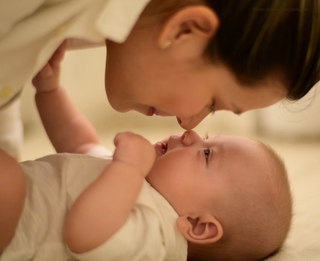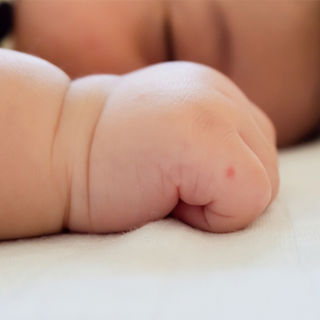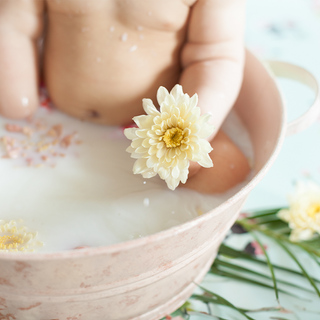
During pregnancy, your body will change in so many amazing and surprising ways to make place for and to welcome your little bundle of joy. While some changes are well-known and anticipated, there are some other bodily changes that might take you by surprise. Here’s a look atsome of themost common bodily changes that you will notice during pregnancy.
1. Skin, hair & nails
Changes in your skin are extremely common and evident during pregnancy. While some women may notice the famous ‘pregnancy glow’ that’s caused by increased blood circulation, some may have increased acne due to hormonal shifts. Stretch marks, varicose and spider veins, skin discoloration are some other changes you may notice. To learn all about skin changes during pregnancy and why they occur, click here.
Good hair days are on their way! During pregnancy, your hair might appear thicker, fuller and more lustrous. This is due to increasing levels of estrogen in the body. However, it may also lead to increase in unwanted hair in certain places such as your stomach, back, nipple area etc. After your delivery, as your estrogen drops, you might experience sudden hair loss. This is a normal postpartum occurrence. A few months after your delivery, your hair growth will most likely regularize.
Similarly, your nails will also grow faster during pregnancy but you’ll notice that they are more brittle in texture. Make sure you’re taking your pregnancy vitamins and eating a nutrient-rich pregnancy diet.
2. Swelling of Breasts
One of the earliest signs of pregnancy are changes in your breasts.As your body begins to prepare for breastfeeding, not only will your breasts increase in size several times during your pregnancy, but they will also become a lot more tender and sensitive. Make sure you wear comfortable bras that offer good support during this time. You might also notice small bumps around your nipples. As your body has already started producing breast milk even before your baby arrives, you might see a few drops of ‘colostrum’ leaking from your breast. This is also known as ‘first milk’ and it is either clear or yellowish in colour.
3. Vaginal changes
You might notice adifference inyour vaginal region as well. Due to the increase in blood flow to this area, you might notice that your vagina has a bluish tinge to it. This is perfectly normal. Due to similar reasons, your vagina might also feel thick and swollen with increased sensitivity. As your uterus grows, it can put added pressure on this area. That, along with increased blood flow and changing hormones can also cause you to develop varicose veins in the vaginal area. These will typically disappear a few weeks after your delivery. If it gives you pain and discomfort, use a warm compress on the area and sit with your legs elevated.
Vaginal discharge also becomes pretty common during this time. It is normal to see a milky white discharge more often than usual. If your discharge is yellow or greenish in colour, it may be signs of an infection and it’s best to get it checked.
Changing pH levels can also increase the possibility of vaginal infections while you’re pregnant. You might notice that the area becomes more sensitive and itchy. If you’re facing any of these issues, speak to your doctor and see if they can prescribe any medication.
4. Teeth & Gum Issues
Swelling of the gums is another common pregnancy symptom, accompanied by sensitivity and sometimes even bleeding. This is called pregnancy gingivitis. You can help avoid these issues by taking extra care of your oral health during this time. Brush and floss frequently and eat healthy foods.
Excessive throwing up due to morning sickness can contribute to the erosion of tooth enamel. Rinse your mouth often and drink lots of water. Avoid brushing your teeth immediately after throwing up your food as this can worsen the erosion.
Taking good care of your dental health is very necessary during pregnancy. Don’t shy away from visiting your dentist if you notice any of these issues.
5. Growing Belly, Weight gain and Swellings
Obviously, one of the most notable changes is your growing belly. Although your waist barely expands in the first trimester, it is between 12-16 weeks that you will really notice your belly begin to pop. However, it’s okay for your belly to expand at a different pace and as long as your ultrasound is okay, don’t be too concerned about your size.
Most of your weight gain will take place in the second and third trimesters. Based on your age, height, weight and other factors, your healthcare professional should be able to tell you how much weight is healthy for you to gain during this period. A lot of your weight gain also takes place due to water retention, which is why you will notice swellings in your face, arms and legs. While water retention causes swelling in your feet and around your ankles, a lot of women also see an increase in foot size during pregnancy. A certain amount of swelling is normal, but if you notice a sudden increase in swellings, speak to your healthcare professional. To reduce discomfort caused by swellings, try to avoid standing for longer periods, keep your legs elevated while resting, eat potassium-rich foods, cut back on caffeine and sodium, wear loose, comfortable clothing and drink lots of water.
6. Stretching of joints and ligaments
As your body changes to make more room for the baby and to prepare for childbirth, it produces hormones that relax and loosen your joints and ligaments. This is why you might experience lower back pain or pain in the abdomen.
Some pregnant women are also diagnosed with carpal tunnel syndrome (CTS). This is a condition that affects your hands and takes place when your nerves are compressed due to swellings. You might feel a tingling sensation or numbness in your hands and fingers, and feel a weakening of your grip. This will most likely get better a few months after you deliver your baby. Speak to your doctor for ways to reduce the pain and discomfort.
What common bodily changes did you experience during your own pregnancy? Leave a comment sharing your experiences.























